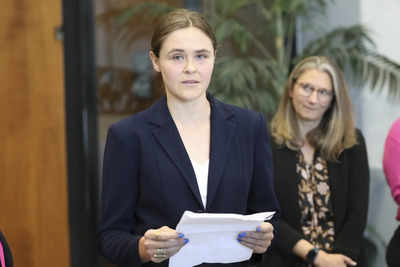Lawyers for South Carolina and Planned Parenthood clashed in the state Supreme Court on Wednesday over how restrictive the state’s six-week abortion ban should be, with a debate centered on the legal definition of a fetal heartbeat.
The 2023 law bans abortions after an ultrasound detects “cardiac activity, or the steady and repetitive rhythmic contraction of the fetal heart.” While the state argues this occurs around six weeks, Planned Parenthood contends that medical experts place true heart formation around nine or ten weeks, making the law’s language ambiguous.
Justices pressed both sides on the timing of their arguments, questioning why Planned Parenthood hadn’t raised the nine-week threshold earlier and why the state relied on a broad interpretation.
“Could it happen on the way to the doctor’s office? How does that give anyone any clarity?” Associate Justice George James asked.
Planned Parenthood lawyer Catherine Humphreville argued that uncertainty in defining the heartbeat forces doctors to err on the side of caution. “No physician is going to risk it even though legally they could,” she said, citing the law’s criminal penalties.
The case, brought by South Carolina resident Taylor Shelton, highlights the practical challenges of enforcement. Shelton, who discovered her pregnancy just two days after a missed period, had to leave the state for an abortion because doctors feared misinterpreting the ban’s limits.
The court is expected to take months to issue a ruling, while the six-week ban remains in effect. Meanwhile, some state Republicans continue pushing for a total abortion ban, though no hearings have been scheduled.
I am a passionate digital marketer, content writer, and blogger. With years of experience in crafting compelling content and driving digital strategies. I’m always exploring new trends, optimizing strategies, and creating content that resonates with audiences. When I’m not working, you’ll find me diving into the latest digital marketing insights or experimenting with new blogging ideas.
